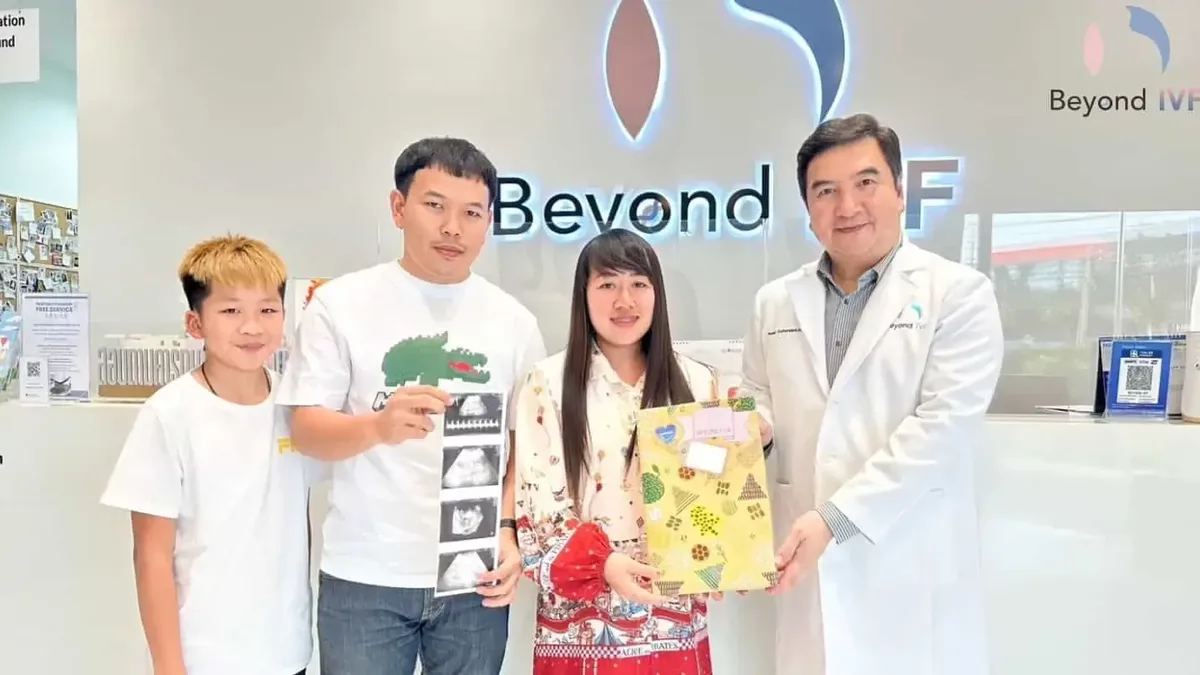Success via IVF/ICSI Despite Fallopian Blockages
Most of our patients can recall their age the moment they realized they had an infertility issue, and for this particular patient, that age was 35. Although she realized she was “getting up there” age-wise in terms of possibly having children, she never imagined having any sort of infertility issues, despite her age. After 2 years of trying naturally without success, however, she and her husband decided it was probably due time for a fertility check-up and thus ended up consulting with Dr. Ton at Beyond IVF after finding us online through our website. Post-consultation, Dr. Ton recommended a thorough medical evaluation, including blood tests and a transvaginal ultrasound to assess how to best proceed.
The ultrasound revealed the culprit behind their issues - blocked and damaged fallopian tubes, which naturally would make natural conception extremely difficult. Dr. Ton suggested that the most suitable treatment was IVF/ICSI, along with chromosomal testing for the embryos to up their chance of a successful embryo transfer.
When the patient’s next cycle began, ovarian stimulation commenced with daily injections under the careful eye of Dr. Ton closely monitoring progress via blood tests and ultrasounds. The conclusion of the stimulation cycle resulted in consistent follicle growth and a healthy number of eggs in both ovaries. After a successful OPU and fertilization, the embryos were cultured for 5 full days, then sent for chromosome testing, resulting in several high-quality embryos ready for transfer.
After waiting 14 days post-transfer, Dr. Ton scheduled a blood test to check hCG levels to confirm pregnancy. Although the initial hCG levels weren’t optimal, Dr. Ton advised calm and waiting 3 more days for another test, which finally revealed rising hCG levels, indicating a potentially positive outcome. After holding their breaths for a few more days, an ultrasound confirmed the presence of a gestational sac, and 9 months later, little Nalin was born in excellent health and good spirits!
We extend our heartfelt thanks to the father, mother, and family for trusting Beyond IVF to be a part of this joyful journey.
Assisted Reproductive Technologies Utilized
ICSI (Intracytoplasmic Sperm Injection)
PGS-NGS (genetic screening for embryo chromosomal abnormalities)



